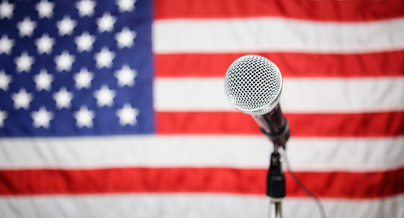
What Elizabeth Warren and Donald Trump Have in Common
 If ever there was an affirmation of the old adage that politics makes strange bedfellows, this is it: Republican presidential nominee Donald Trump and Sen. Elizabeth Warren have both called for the separation of commercial and investment banking, which would effectively reinstate a modern version of the Glass-Steagall Act of 1933.
If ever there was an affirmation of the old adage that politics makes strange bedfellows, this is it: Republican presidential nominee Donald Trump and Sen. Elizabeth Warren have both called for the separation of commercial and investment banking, which would effectively reinstate a modern version of the Glass-Steagall Act of 1933.
Trump, of course, is a billionaire businessman who is not known to have ever voiced an opinion on Glass-Steagall until just recently. And Warren is a Democrat from Massachusetts who has been a fierce critic of big banks and has pushed for a return of Depression-era restrictions that would force several megabanks to divest their investment banking operations. To say that Trump and Warren dislike each other would be the understatement of the century. Trump, as is his tendency, has derided Warren in various tweets, calling her “Pocahontas” in reference to her claim that she is of Cherokee ancestry, and also referring to her as “Goofy Elizabeth Warren.” Warren has returned fire with several Twitter bombs of her own, including the suggestion that Trump delete his account.
While Warren’s position on Glass-Steagall was well known, Trump’s apparent support for the re-separation of commercial and investment banking took many people by surprise, including some Republicans in Congress who generally advocate for less rather than more regulation. The GOP platform, which was approved at last week’s Republican National Convention in Cleveland, contained this sentence: “We support reinstating the Glass-Steagall Act of 1933 which prohibits commercial banks from engaging in high risk investment.” Party platforms don’t necessarily reflect fully the views of that party’s presidential candidate, except that it was Trump’s campaign manager, Paul Manafort, who brought the Glass-Steagall issue to the media’s attention during a news conference at the beginning of the convention, which is available through C-SPAN. Manafort said specifically that the platform “reflects Donald Trump’s impact” and was, in effect his platform.
Whether reinstating Glass-Steagall-era prohibitions would really make the country’s financial system safer is open to debate. The financial crisis was caused by a variety of factors, including nonbank mortgage originators, which were largely unregulated; governmental and regulatory tolerance of a burgeoning market for subprime mortgages and a variety of abusive practices that later ensued; and an accommodative monetary policy by the Federal Reserve that kept rates low for several years and eventually helped create a housing bubble. None of these factors had anything to do with the repeal of Glass-Steagall in 1991.
Given her populist tendencies, it’s no surprise that Warren is opposed to any policy or practice that adds complexity and risk to large financial institutions like JPMorgan Chase & Co., Bank of America Corp. and Citigroup, all of which acquired investment banking firms after the repeal of Glass-Steagall. But why would Trump jump on to the same bandwagon as Warren, whom he clearly detests? The candidate himself has not addressed the issue, but one possible explanation is simple politics—this is, after all, a presidential election year.
During the news conference, Manafort took pains to point out that the Democratic candidate for president, former Secretary of State Hillary Clinton, has received lots of financial support from Wall Street interests. “We believe the Obama-Clinton years have passed legislation that has been favorable to the big banks, which is one of the reasons why you see all of the Wall Street money going to her,” Manafort said. “They know she’s their champion and they support her fully. We support the small banks and Main Street.” Clinton has called for tougher regulation for the banking industry but has stopped short of advocating for a re-separation of commercial and investment banking.
There could be a couple of things going on here. First, this could be a play by Trump for the supporters of Clinton’s principal rival during the Democratic primaries, Vermont Sen. Bernie Sanders, who has also been a strong and vocal proponent for the reinstatement of Glass-Steagall. Another possible explanation is money. To date, Trump has lagged Clinton in fundraising for his campaign, and if Clinton has most of the Wall Street money locked down then perhaps he hopes to raise money from small banks instead.
Whatever his motivation might be, this is probably the only time in recorded history when Donald Trump and Elizabeth Warren agree on anything.



